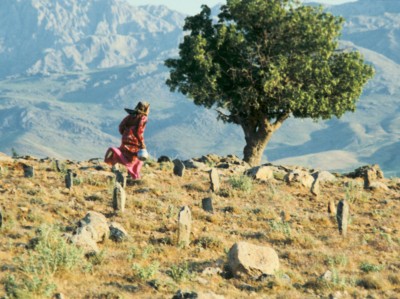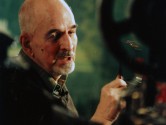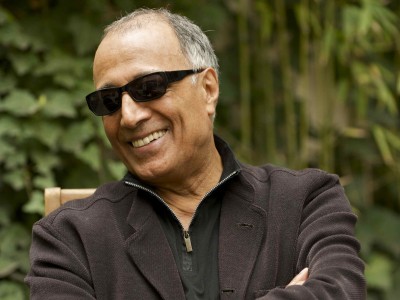
The Wind Will Carry Us
With Behzad Dourani and the inhabitants of the village of Siah Dareh.
Iran, 1999, 35mm, color, 115 min.
Farsi with English subtitles.
Print source: New Yorker Films
The appearance of every Kiarostami film is now a major event. From the unlikely outpost of a country poorly understood by the West, this acclaimed Iranian director (Where is the Friend’s Home?, Taste of Cherry) has virtually reinvented the narrative cinema through his unique, spare means of developing story through encounters with the environment and its inhabitants. Kiarostami loves journeys that involve psychic discovery. In this one, a group of men, sophisticated urbanites with a cell phone, arrive from Tehran for a short stay at Siah Dareh, a village in Iranian Kurdistan. Their reasons for being there are unclear to us, but their actions lead the villagers to believe they are looking for treasure. It is in the time between events—in a conversation with a café owner, in a trip to fetch milk from an underground stable—that the usual parable of progress brought to bear on backwardness is reversed. Ultimately, as in all Kiarostami’s work, the meaning of the story lies as much with the viewer as it does with the film. "Constructed with his trademark, soulful serenity and refreshingly minimalist approach," as the critic Dimitri Eipides has described it, The Wind Will Carry Us is "another essential film from a master filmmaker."


















